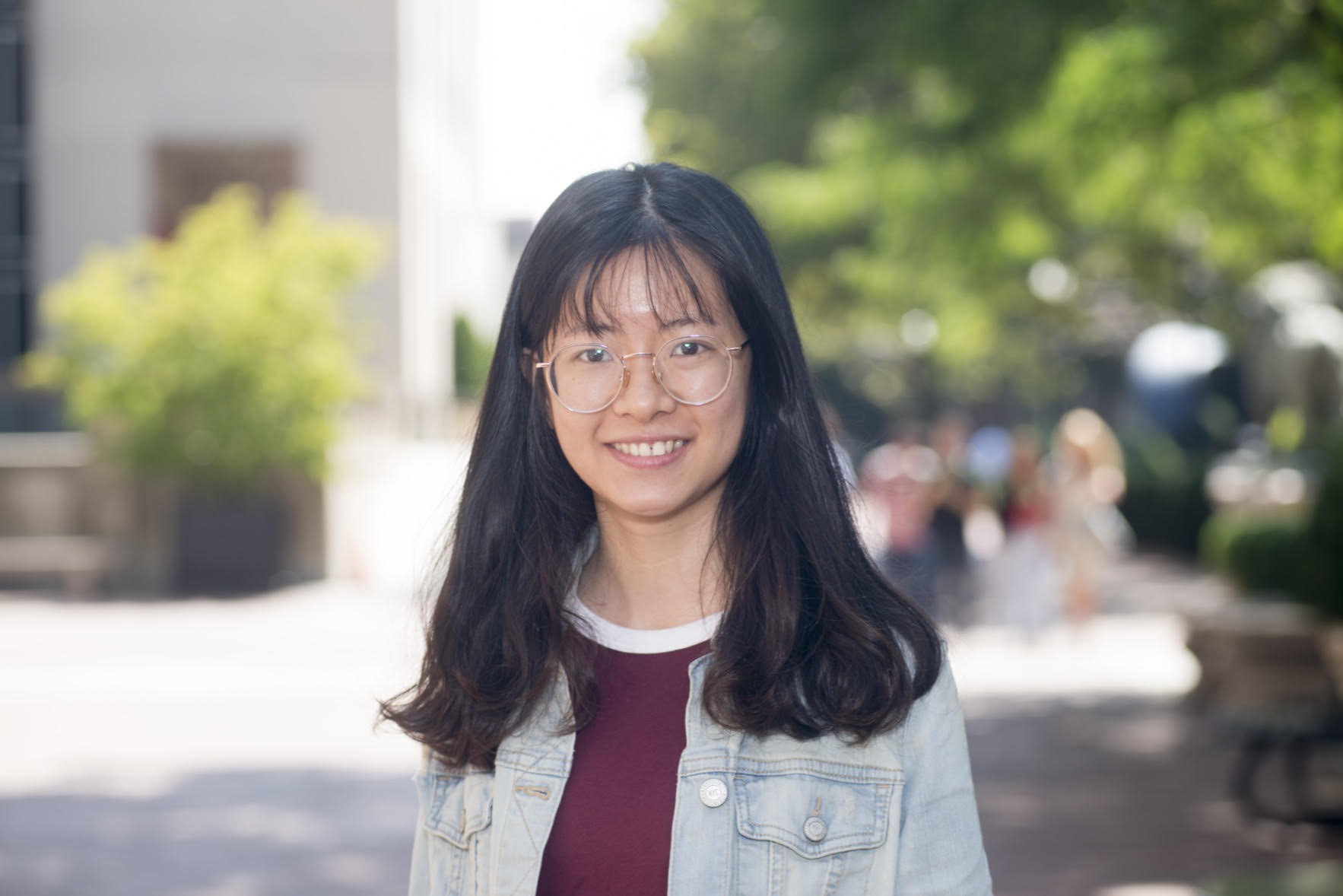Abstract:
Rotational-translational decoupling, a phenomenon commonly observed in supercooled liquids, has been a topic of great interest. Despite its prevalence, the underlying cause of this phenomenon, often attributed to dynamic heterogeneity, has not been conclusively elucidated. This thesis investigates and evaluates how dynamic heterogeneity may lead to this decoupling using simultaneous single-molecule rotational and translational measurements. In the experimental study, single molecule fluorescence imaging experiments are performed on the ideal probe N,N’-dipentyl-3,4,9,10-perylenedicarboximide in high molecular weight polystyrene near its glass transition temperature. A novel trajectory linking method based on hierarchical clustering is developed to facilitate single molecule tracking even in imaging data where specific molecules cannot be observed visually for a substantial number of frames. This linking algorithm then allows molecules to be localized over full movies, such that rotational and translational measurements can be compared over comparable timespans. The investigation of translational dynamics using such long trajectories, which was not previously achieved, reveals that both rotational-translational decoupling and translational enhancement persist on the single molecule level, supporting the hypothesis that temporally heterogeneous dynamics experienced by the probe molecules is a contributing factor in observed rotational-translational breakdown in both ensemble and single molecule studies. A tendency towards dynamical convergence between subgroups with fast and slow dynamics is observed, demonstrating temporal heterogeneity at the single molecule level. In comparison to rotational dynamics, translational dynamics was discovered to have a longer lifetime. Other key observations facilitated by the linked trajectory analysis include that apparent diffusion coefficient of probe molecules decreases with longer observation time, a finding inconsistent with normal diffusive behavior. To investigate the origin of this anomalous slowing in single molecule studies existing alongside the observed overall enhancement in translational motion, temporally heterogeneous models with multiple types of correlation were studied via simulations. The results emphasize the critical role that bias in translational and rotational measurements can play when investigating and observing dynamic heterogeneity, as nearly all models including dynamic heterogeneity show increasing diffusion coefficient with increasing number of dynamic environments explored. Strikingly, translational enhancement is evident in single molecule translational simulations even when slow dynamics are reinforced via positive correlation in the models. A comparison of the diffusion coefficient evolution between simulations and experiments reveals that the sub-diffusive continuous time random walk model is the most plausible candidate to account for the set of observations seen in experiment.

